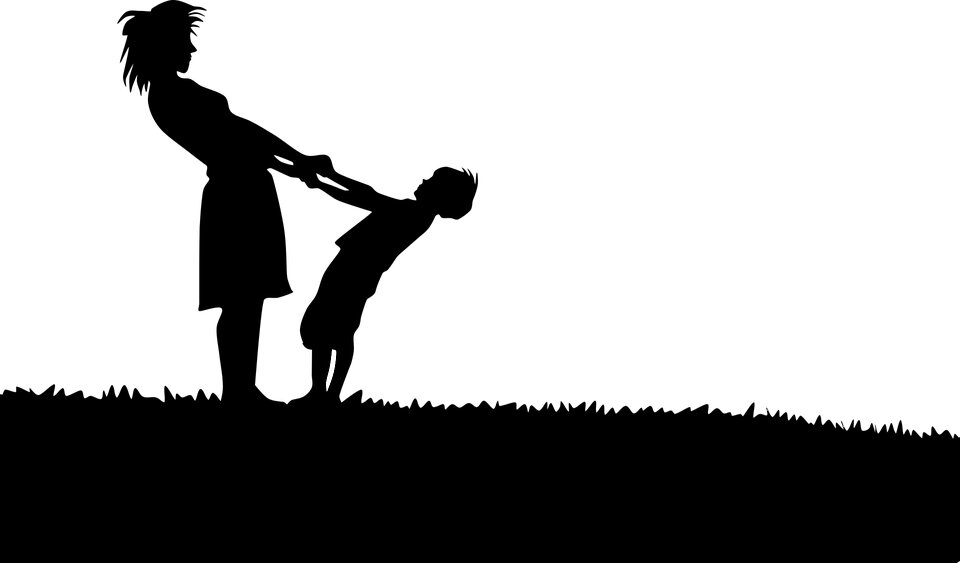
“Mother, Any Distance” is a short poem composed by one of the most popular contemporary English poets, Simon Armitage, who is known for expressing complex emotions under the apparent simplicity of his poems. Published in 1993, this poem focuses on the beautiful relationship that exists between a mother and her child, and the bond they share.
The poem explores the universal connection shared by a mother and her child, and how, even if miles may come between them, this connection never fades. The speaker in the poem, now an adult, is all set to move into a new house, probably for the first time in his life, in order to live an independent life. He seeks his mother’s help in setting up the place and during that time he realises the magnitude of that moment. He feels the full impact of the situation- how he would no longer be living with his mother, he would no longer be dependent on her and how he is now on his own in the real world, solely responsible for his struggles and achievements as he paves his way ahead in life.
He is at that point in his life when he must step out and explore the world. But while he acknowledges that there would be some distance now between him and his mother, whom he loved so dearly, he also knows that no matter how far they are, the connection between them will not be lost. Although from now onwards, he has to fight his battles on his own, he feels that there would never come a time when he wouldn’t need his mother by his side. There would always be some or the other point in his life when he would need her support, such as the current moment when he is trying to set up his new home.
Mother, Any Distance | Summary and Analysis
Mother, Any Distance | Lines 1-4
Mother, any distance greater than a single span
requires a second pair of hands.
You come to help me measure windows, pelmets, doors,
the acres of the walls, the prairies of the floors.
In the very first lines of the poem, Armitage sets the premise for it. The speaker is shifting to a new house and needs his mother’s help in setting up this place. Speaking to his mother, he says that any distance that is longer than a single span needs two people to measure it. Thus, his mother’s help is much needed to enable him to measure the windows, doors, walls and the floor of the new house he shall soon be shifting to. Through these lines, the poet shows how a child is always reliant on his mother, especially emotional support, even when he moves away from her in order to seek his own space.
The empty house seems very daunting to him- the walls feel as if they stretch out for acres and the floor seems to be as big as the prairies. Thus intimidated by the enormity of the situation, especially the thought of handling it all alone in his quest for independence, he seeks his mother’s help as he makes this huge shift in life. His doting mother promptly comes to his aid and supports him fully in making the empty space more homely.
Mother, Any Distance | Lines 5-8
You at the zero-end, me with the spool of tape, recording
length, reporting metres, centimetres back to base, then leaving
up the stairs, the line still feeding out, unreeling
years between us. Anchor. Kite.
The poet gives a description of the situation that is happening at the speaker’s new house. The speaker is holding one end of the measuring tape with his mother holding the other and both of them make a record of the various lengths and measurements that are required to be taken across the house. Together, they cover the entire house from the top to the base, measuring every distance.
The speaker’s mother is holding the starting point of the tape while the speaker unfurls the tape and reports the various measurements to her. The mother’s presence at the zero-end is representative of the fact that she is the anchor positioned at the beginning of his life while he is the end that moves around, exploring life.
The measuring tape is a representation of the connection that the speaker and his mother share. A mother and her child are connected even before he takes birth and this connection continues even when years pass between them. With time, the connection may undergo certain changes but the fundamental love and care always remain the same.
The mother gives stability and security to the child, just like an anchor. And the child, like a kite, always remains connected to his mother, however high he flies. Thus, even though the speaker is now an independent adult ready to step out into the world, he shall always be a child to his mother and shall always find a sense of security in her.
Mother, Any Distance | Lines 9-15
I space-walk through the empty bedrooms, climb
the ladder to the loft, to breaking point, where something
has to give;
two floors below your fingertips still pinch
the last one-hundredth of an inch… I reach
towards a hatch that opens on an endless sky
to fall or fly.
As the speaker walks through the various rooms of the new house, eventually going up to the loft, the physical distance between him and his mother keeps increasing, to a point where it seems like one of them will have to now let go of the tape. He realises that the mother-child connection too, like everything else, shall end one day as the emotional distance between them grows with the passage of time. As both of them live their individual lives, separate from one another, there might come a time when tensions arise between them or when the distance between them becomes too much and they no longer share the same connection that they once shared during his childhood.
He mulls over the tightness of the measuring rope in his hands, feeling that it has reached the point where he, or his mother, have to let go of the end they are holding, lest the tape may break. As he is thinking this, he feels that his mother, who is standing two floors below him, continues to clutch her end very tightly, despite feeling the tension in the tape. This shows that come what may, a mother shall never let go of the connection and bond she shares with her child and shall strive to hold on to it with all her power. Even as the speaker ventures further away from her, his mother desperately tries to keep their connection intact, with her fingertips holding on to “the last one-hundredth of an inch” of the measuring tape that connects her to her child.
The poem ends with the speaker unlatching a small door that opens out to the infinite sky above, symbolising the vastness of the future that awaits him as he takes his first step towards independence. From this place, he can either soar and achieve great success or he can fall, failing in his attempts to make it on his own in life. Out in the world, like a little bird who is ready to leave its nest and take flight, he can either fail or succeed. But in both cases, his mother has got his back, holding tightly the measuring tape that connects them.
Mother, Any Distance | Themes
The poem is a tribute to the special bond that a child shares with his mother and this mother-child connection is what forms its central theme. This bond is symbolised by the measuring tape, one end of which is held by the speaker and the either by his mother who has come to help him in setting up his new house. While the child is like a kite or a bird, that is taking his first flight towards an independent life, his mother is the anchor that provides him stability by holding on to him regardless of the distance that comes between them.
The theme of growing up and the transition from childhood to adulthood is also explored in the poem. The speaker realises that eventually, everyone has to grow up and that his mother might not always be around for him. But he also knows that her love and support shall always be with him wherever he goes. This gives him the confidence and strength to try to stand on his own two feet and create a life and a home of his own.
Mother, Any Distance | Literary Devices
Symbolism can be seen in the poet’s use of the measuring tape as a means to represent the connection between the speaker and his mother. Also, in Line 14, the “endless sky” is symbolic of the future that awaits the speaker.
Alliteration is used in lines 1 and 2 (“single span”) along with consonance of the /s/ sound. It can also be seen in line 6 (“back to base”) and line 15 (“fall or fly”).
Assonance has been used in abundance such as the repetition of /a/ sound across lines 1 and 2, the /e/ sound in the second stanza and the /i/ sound in lines 12 and 13.
Enjambment and caesuras appear throughout the poem, to lend it the same effect as that of the measuring tape unfurling which is the central image employed by the poet.
In the first stanza, “acres” and “prairies” are metaphors for the enormity of the poet’s shift to his new house which is his first step towards independence. “Anchor” and “Kite” in the third stanza are metaphors for the mother-child relationship and so is the “spool of tape”. The “zero-end” in line 5 is a metaphor used to compare the initial end of the tape which is held by his mother to the poet’s childhood when his mother was his strongest support system. The poem’s closing lines are metaphorical as well, comparing the poet’s move to his own house to that of a little bird’s first flight from its nest- its childhood home. Both of them can either fly and succeed or fall and fail.
Mother, Any Distance | Form and Structure
The poem is composed of 3 stanzas; while the first two stanzas are of 4 lines each, the last stanza has 7 lines. This is very much in conformity to the form of a sonnet, differing only in the last stanza which contains 7 lines instead of the six lines that constitute the sestet in a typical sonnet. It is written in free verse and follows an irregular rhythm.

